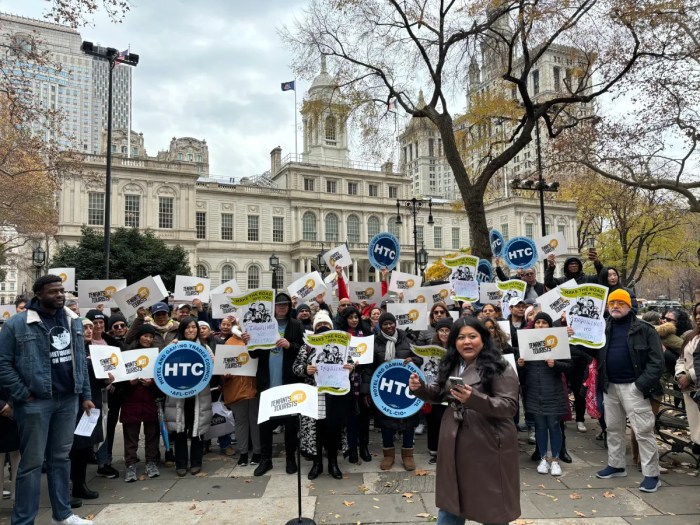By Rebecca Henely
The U.S. Citizenship and Immigration Services office in Long Island City hosted a forum Tuesday to get the word out about legal options for immigrants who have been victims of human trafficking, abuse or domestic violence.
“We know there are victims out there and there is help available,” said Andrea Quarantillo, district director of USCIS for New York City, at the office at 27-35 Jackson Ave.
Scott Whelan, of the USCIS’s office of policy and strategy, said there are three ways that can help immigrants who have been victimized.
First, T visas allow victims of all types of trafficking — forced labor, sexual or involuntary servitude — to stay and work in the United States on a temporary basis.
Whelan said many victims of this underground crime end up dead.
“Human trafficking is a brutal crime,” he said.
A U visa is available for victims of abuse and other crimes, Whelan said. Immigrants who suffer from domestic violence, both female and male, also can apply for legal status without having to go through their abusive spouse under the provisions of the Violence Against Women Act.
“There are avenues for them to come forward,” said Lynn Boudreau, USCIS’s assistant center director for the Vermont Service Center.
Boudreau said the government issues 10,000 U visas each fiscal year and 5,000 T visas. The U visas are usually all issued, which means some cases are carried over to the next year, although the T visas are underused.
Julie Dinnerstein, a professor of immigration law, said it is hard to quantify how widespread the problem of human trafficking is in the city because there are many obstacles to enforcement.
Victims are sometimes part of international trafficking rings and they often do not come forward for fear not only about their own safety, but the safety of their families at home. She said those who have been prostituted also fear stigma.
“There’s this myth of an army of voluntary prostitutes out there,” she said.
Finally, Dinnerstein also said trafficking victims can come to the United States through various avenues, including tourist or student visas, through a marriage to a U.S. citizen, through a family who are permanent residents or through smuggling.
Even if requests for visas are eventually denied, Quarantillo said USCIS does not then begin deportation for the immigrant. USCIS also works closely with judges and the U.S. Immigration and Customs Enforcement if a crime victim is going through the process.
“We do not use these cases as a way to put people in removal proceedings,” Quarantillo said.
Reach reporter Rebecca Henely by e-mail at rhenely@cnglocal.com or by phone at 718-260-4564.



































